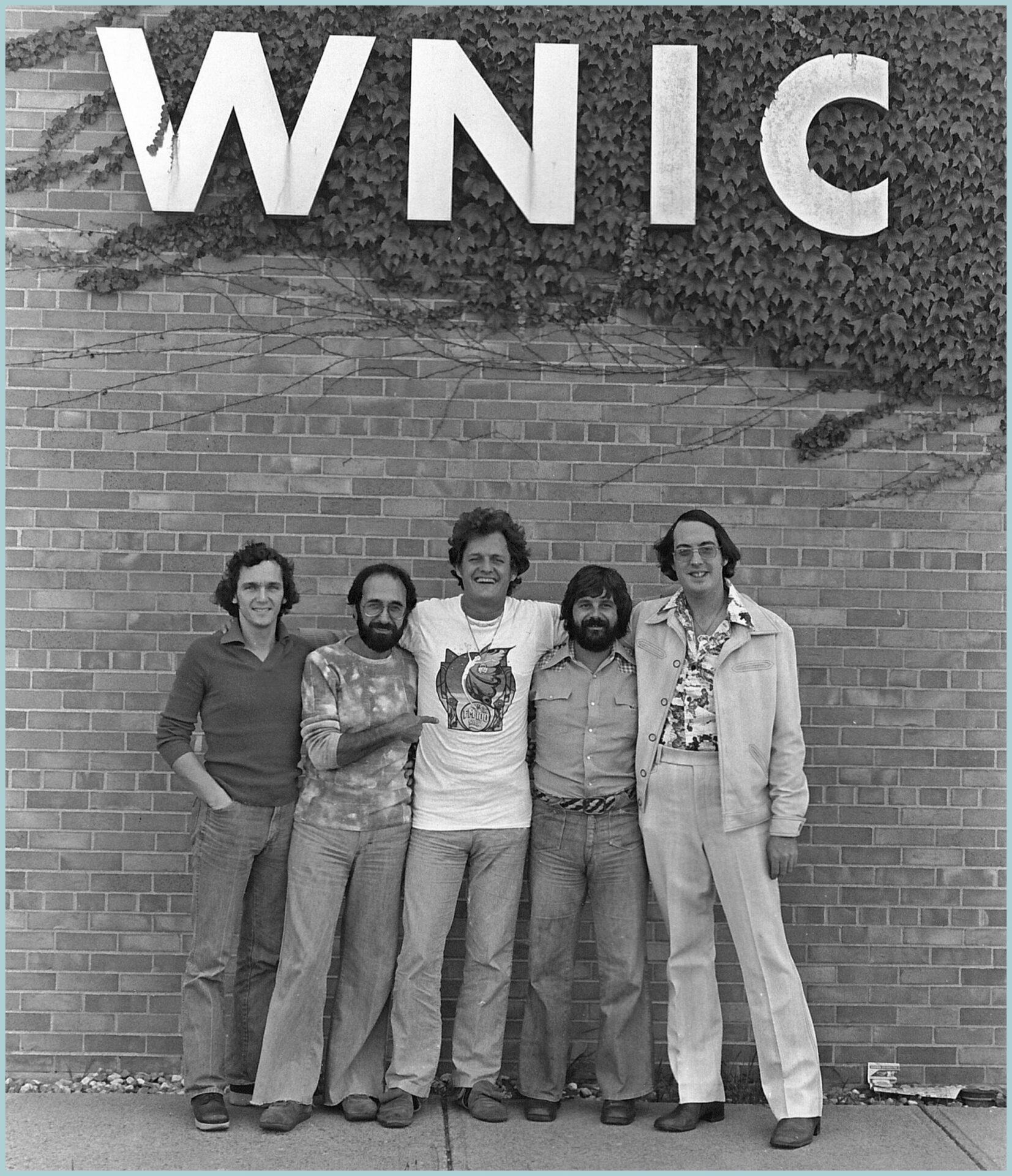
![WNIC-FM [1976] Roy Stephens to the left and Stevie Wonder, then Paul Christie and Steve St John. Stevie was promoting "Isn't She Lovely" at WNIC.](https://mcrfb.com/wp-content/uploads/2023/03/WNIC-Roy-Stephens-PIC-2-MCRFB-2023.jpg)
 A special thank you to former WNIC, WMJC, WOMC, and WCZY personality, Roy Stephens, for recently sharing (on March 3, 2023) his wonderful WNIC radio images and memories with Motor City Radio Flashbacks.
A special thank you to former WNIC, WMJC, WOMC, and WCZY personality, Roy Stephens, for recently sharing (on March 3, 2023) his wonderful WNIC radio images and memories with Motor City Radio Flashbacks.
All featured photos property of Roy Stephens
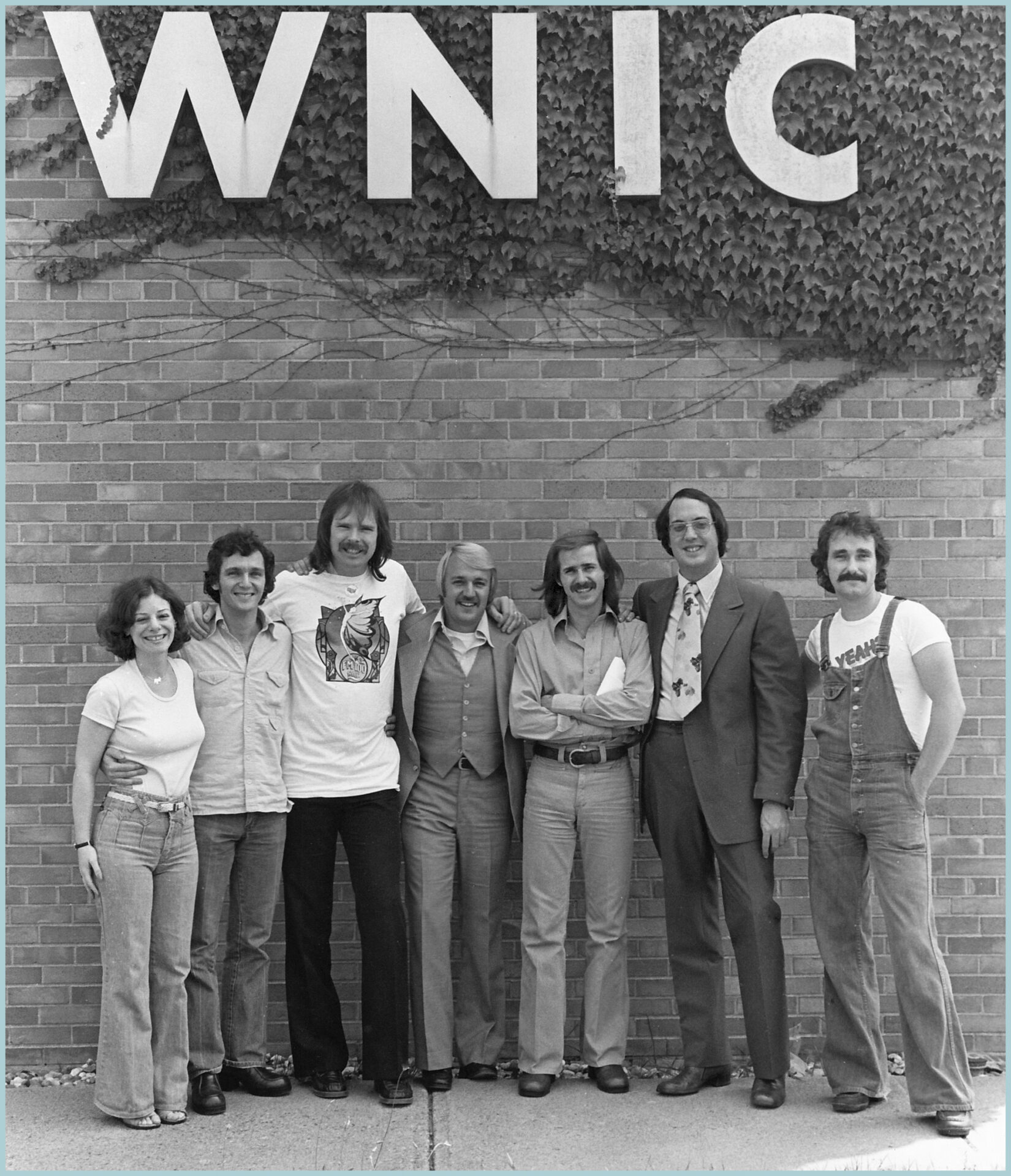
![]()

![WNIC-FM [1976] Roy Stephens to the left and Stevie Wonder, then Paul Christie and Steve St John. Stevie was promoting "Isn't She Lovely" at WNIC.](https://mcrfb.com/wp-content/uploads/2023/03/WNIC-Roy-Stephens-PIC-2-MCRFB-2023.jpg)
 A special thank you to former WNIC, WMJC, WOMC, and WCZY personality, Roy Stephens, for recently sharing (on March 3, 2023) his wonderful WNIC radio images and memories with Motor City Radio Flashbacks.
A special thank you to former WNIC, WMJC, WOMC, and WCZY personality, Roy Stephens, for recently sharing (on March 3, 2023) his wonderful WNIC radio images and memories with Motor City Radio Flashbacks.
All featured photos property of Roy Stephens

![]()
 MCA, Boston Ventures Close $61 Million Deal
MCA, Boston Ventures Close $61 Million Deal
LOS ANGELES — The sale of Motown Records to the partnership of MCA Records and investment firm Boston Ventures closes the book on Motown’s history as America’s most prominent black -owned independent record company, but the deal has been structured to encourage at least partial minority ownership of the label.
 After weeks of discussion, the purchase was sealed by the principals on June 28. According to Motown executive VP Al Bell, the sale price was $61 million. An informed source says the record label had sales last year of approximately $50 million.
After weeks of discussion, the purchase was sealed by the principals on June 28. According to Motown executive VP Al Bell, the sale price was $61 million. An informed source says the record label had sales last year of approximately $50 million.
Bell confirms that Berry Gordy Jr., founder and chairman of the 30-year old label, “has insisted that 20% equity ownership in the company be made available to minorities.”
The percentage of black ownership could go even higher: Jheryl Busby, MCA executive VP of talent acquisition and president of black music, who is the heir apparent to Motown’s presidency, may receive a 10% equity interest in the label as part of his contract.
Boston Ventures put up 80% of the purchase price, and MCA bought the remaining 20%. Taking into consideration the minority-ownership provision, Bell says, “MCA would end up with 20 %, Boston Ventures with 60%, and the minorities with 20%.”
Under this arrangement, says one source, the future minority shareholders would be able to buy equity from Boston Ventures at the “founder’s share” price – that is, at the per-share acquisition price.
The source adds that the terms of Busby’s stake in Motown are still under discussion; one scenario has part of the stock being given to him outright when he assumes the presidency, with the remainder being withheld as a performance incentive.
Busby’s appointment to the Motown post remains unconfirmed by MCA, which issued only a brief press release on the purchase. MCA Music Group president and chief executive officer Irving Azoff and MCA Records president Myron Roth were unavailable for comment.
However, a source says that an agreement with Busby to take up the Motown reins is “90% done,” and many in the industry – including the outgoing president of Motown Record Corp. – are already discussing his ascendancy to the new post as a fait accompli.
Asked if Busby has been chosen as his successor, outgoing Motown Records president Skip Miller says, `”Being inside, I’d have to say he is. He’s the guy they’ve been talking to. I don’t know if he has a deal yet.”
A Capitol Records source has denied that Step Johnson, Capitol VP and general manager of black music promotion, has discussed the assumption of Busby’s duties with the MCA executive.
It is clear that Motown will be staffed by new executive and managerial personnel.
Miller was to depart Motown July 1, while Bell and Motown Music Group president Lee Young Jr. will sign on with the Gordy Co., Gordy’s diversified entertainment firm.
Motown spokesman Mike Roskind confirms that the company is laying off employees in the wake of the sale. Saying that the size of the staff is “still in a state of transition,” he characterizes the staff cuts as “nothing extreme and nothing conservative.”
A source at Motown says that VP of marketing Miller London and VP of R&B promotion Ronnie Jones will be among a small number of current staff members to be retained in the coming weeks.
“We have placed a great deal of our staff with MCA,” Miller says.
The Motown purchase involves only a part of the large entertainment conglomerate built by Gordy.
Under the terms of the agreement, MCA and Boston Ventures will purchase Motown’s trademarks, its existing contracts (including those of Lionel Richie and Stevie Wonder, the latter of whom agreed to continue with the label just before the sale), and its formidable catalog.
Not included in the sale is Jobete Music, Motown’s lucrative publishing company; the Hitsville studios; record pressing facilities in Arizona and Tennessee; a tape duplication plant in Michigan; and Motown’s film and television production companies.
Jobete, which some observers estimate is worth as much as $95 million, was reportedly included in the original sales discussions between MCA and Motown in late 1986, but was not a subject of the most recent negotiations.
Roskind says Hitsville will remain under Gordy’s ownership. “I’m not sure how [the pressing plants] will be disposed of,” he adds.
John Burns, executive VP of MCA distributing and manufacturing, says that in addition to handling the distribution of Motown product (an arrangement that began in July 1983), MCA will now manufacture Motown’s product.
“We’re going to use their tape facility for some of their overflow,” Burns says.

The sale of Motown climaxes three decades of glittering success and latter-day decline under Gordy’s leadership. The company, which enjoyed about 30 No. 1 pop hits between 1962 and 1971 (when the label moved its headquarters to Los Angeles), has been unable to develop the kind of major crossover acts it had in the heyday of the Supremes, the Temptations, Marvin Gaye, Stevie Wonder, the Four Tops, Smokey Robinson & the Miracles, and other top acts.
Last year, Motown was fourth on Billboard’s year-end list of top black singles labels and eighth among top black album labels; MCA placed first in both categories.
Ironically, the Motown sale was completed the week that its only recent hit album, Wonder’s platinum “Characters,” fell off the Billboard Top Pop Albums chart.
Observers view the sale of the label with both optimism and regret. “I’m very happy that Motown lives and will go on, because it’s an institution,” says outgoing president Miller.
“The realities say that Motown as a black enterprise has grown to the level of an institution,” says executive VP Bell. “Institutions grow to a point where they outgrow individuals or groups.”
Benny Medina, VP of A &R at Warner Bros. and a former Motown staff producer, says the sale was “a good thing based on the current state of affairs there creatively and economically.
This sale will keep alive a tradition of artistry and preserve those things that Berry Gordy built. Under Busby it won’t go by the wayside, as so many other black institutions have.”
Medina cites “a lack of creative vision” as the reason for Motown’s demise over the last 10 years: “Motown was based on first-rate creativity and the careful development of writers, artists, and producers.”
LeBaron Taylor, VP and general manager of corporate affairs for CBS Records Inc., whose Detroit-based Ric -Tic label was bought by Gordy in 1965, reflects on the sale with highly mixed emotions.
“I’m saddened by the fact that Motown was in the position that Berry had to sell or infuse the company with new capital,” Taylor says. “On the other hand, I understand it.
“Back in Detroit, it was our black company,” he continues. “There was a lot of pride – it was our culture. So we’re saddened by it, naturally.” END
Assistance in preparing this story
was provided by Iry Lichtman and Nelson George in New York.
_______________
Credit source information: Billboard, July 9, 1988


![]()

![]()
 Identified with The Temptations, Ruffin Wants To Be Known ‘As Myself’
Identified with The Temptations, Ruffin Wants To Be Known ‘As Myself’
LOS ANGELES — When David Ruffin left his lead singer slot with the Temptations in 1968 following a string of hits, including six top 10 disks in four years, many considered the move a risky one at best for a man who was in a R&B group that basically never missed the charts.
Yet Ruffin’s first solo effort, “My Whole World Ended,” was also a top 10 hit. He followed with several more chart records over the next few years, before taking a hiatus from the business of pop, R&B.
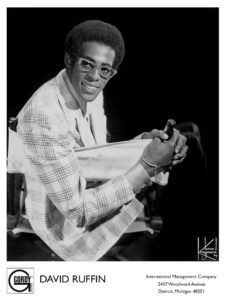 Now, back with a new LP (“Me ‘n’ Rock And Roll Are Here To Stay”) and set to perform again, the man many feel is the most important and most popular R&B vocalist is looking forward to a beginning of a brand new career.
Now, back with a new LP (“Me ‘n’ Rock And Roll Are Here To Stay”) and set to perform again, the man many feel is the most important and most popular R&B vocalist is looking forward to a beginning of a brand new career.
With the Temptations, Ruffin was lead singer for one of the first black groups to break the “soul” category barrier. The hits were universal hits. “We were singing universal songs,” he says today, “produced by good people and written by good people. And the masses were ready for it.
“As for leaving the group, he says, “I had been a solo artist before joining and I wanted to be solo again. There were some conflict and some jealousy within the Temps,but most groups are that way. I’m not taking anything away from my days with the group, because they were some of the most beautiful times I had. Still, in a group you are obligated to give your all to that group. It didn’t bother me to the extent it affected my singing, but it did affect me. So, while it was beautiful to have been lead singer of the Temps for four years, it may have been the most important thing that happened to me when I decided to leave them.”
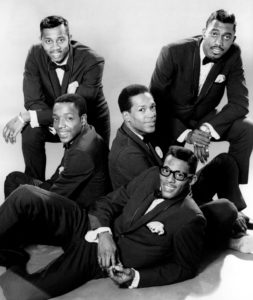 As mentioned, Ruffin’s first effort was a solid hit. Then he began to take things a bit slower. “I wanted to be identified with the Temptations in a way,” he says, “plus I wanted to be known as myself. And you really cannot change your voice.”
As mentioned, Ruffin’s first effort was a solid hit. Then he began to take things a bit slower. “I wanted to be identified with the Temptations in a way,” he says, “plus I wanted to be known as myself. And you really cannot change your voice.”
During this hiatus, Rod Stewart began stating in interviews that Ruffin was the greatest R&B singer he’d ever heard, and cut such Temptations classic as “Losing You,” and “I Wish It Would Rain,” on his LPs. The Rolling Stones recently cut “Ain’t Too Proud To Beg,” and Stewart once called upon Ruffin from the audience to join him on stage.
“I thought the things Rod said were great,” Ruffin says, “because I admire him and also because so few take time to acknowledge others. He used to come to my house when he was in Detroit, and we’ve still got three songs we wrote together.”
Ruffin says his time over the past few years were spent “trying to take a look at myself. I didn’t make much money but I had a lot of fun and I learned a lot by listening and watching. And I think that more than everything else, good rock is now good rock. The barriers between music are breaking, and the black artists has a better overall opportunity.
 “But it’s the rock scene I like. That’s why my LP is called what it is and that’s why there are things we hope will appeal to everyone on it. It’s the most relaxed thing I’ve ever done. I took my time; I took the songs home and I had fun. And I found how to get the most from my voice.
“But it’s the rock scene I like. That’s why my LP is called what it is and that’s why there are things we hope will appeal to everyone on it. It’s the most relaxed thing I’ve ever done. I took my time; I took the songs home and I had fun. And I found how to get the most from my voice.
“Norman Whitfield produced most of it and wrote most of it. And the LP is more planned than anything I’ve ever done and I think that, along with aiming the LP at everyone, it has become a growing trend in black music.”
As for touring, Ruffin opened at the Whisky Au Go-Go here last week with a new band (two guitars, bass, drums, keyboards, alto and tenor saxophones) and will decide on his “road” future after the engagement.
One thing Ruffin will do is one-nighters. “I happen to like them,” he says, “I’m not 24 anymore, but I still like to sing to people, and the more places you go, the more singing you do and more people you meet. And you can always learn.” END
_______________
Credit source information: Billboard, November 16, 1974

![]()
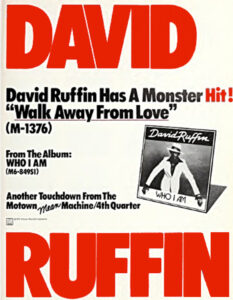 “Walk Away From Love” is a song recorded by American singer David Ruffin in 1975. The million-selling single, produced by Van McCoy and written by Charles Kipps, was number one on the US R&B Singles Chart for one week in early 1976, and crossed over to #9 (2 weeks; January 24, 1976) where it remained 15 weeks overall on the Pop Charts. In Canada, the song peaked at #30.
“Walk Away From Love” is a song recorded by American singer David Ruffin in 1975. The million-selling single, produced by Van McCoy and written by Charles Kipps, was number one on the US R&B Singles Chart for one week in early 1976, and crossed over to #9 (2 weeks; January 24, 1976) where it remained 15 weeks overall on the Pop Charts. In Canada, the song peaked at #30.
“Walk Away from Love” was Ruffin’s only number-one R&B hit, and only one of two Top 10 pop hits for Ruffin on the Billboard Hot 100, the other being “My Whole World Ended (The Moment You Left Me)”, which also peaked at #9. The song was his only solo entry into the UK charts, where it was a top ten hit as well, and peaked at #10 in early 1976. The backing vocals were performed by the disco group Faith, Hope & Charity.
Released November 15 1975, “Walk Away From Love” peaked at #1 (charted 17 total weeks R&B overall) on the Billboard R&B charts in 1975. B-side: “Love Can Be Hazardous To Your Health” MOTOWN 1376F
_______________
Source: Billboard Top R&B Singles; Joel Whitburn Pop Annual; Wikipedia

![]() Audio digitally remastered by Motor City Radio Flashbacks
Audio digitally remastered by Motor City Radio Flashbacks
![]()
 David co-partnered Musically with Burt Bacharach from 1957 Through 1973
David co-partnered Musically with Burt Bacharach from 1957 Through 1973
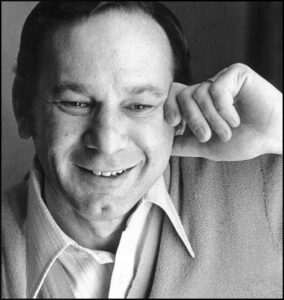 HAL DAVID, WHO DIED SEPT. 1 AT THE age of 91, was a lyricist with a unique understanding of how to partner a singer and a song. For all the adventure longtime partner Burt Bacharach infused in the melodies of the tunes they wrote together, David was an equal when it came to instilling a pared-down (and instantly memorable) sophistication in a lyric. Though his biggest hits came in the ’60s, he was a throwback to the pre-rock’n’roll days of Tin Pan Alley, and a more than capable A&R man.
HAL DAVID, WHO DIED SEPT. 1 AT THE age of 91, was a lyricist with a unique understanding of how to partner a singer and a song. For all the adventure longtime partner Burt Bacharach infused in the melodies of the tunes they wrote together, David was an equal when it came to instilling a pared-down (and instantly memorable) sophistication in a lyric. Though his biggest hits came in the ’60s, he was a throwback to the pre-rock’n’roll days of Tin Pan Alley, and a more than capable A&R man.
It’s a point Bacharach himself makes in an appreciation piece published in the Los Angeles Times, recounting the story of the song “What The World Needs Now Is Love,” which Bacharach initially presented to the songwriting duo’s muse, Dionne Warwick, who rejected it.
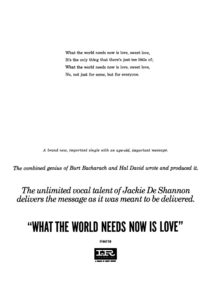
When Bacharach and David were working with Jackie DeShannon in 1965, nearly a year after the song was written, David reminded Bacharach of its existence. “When she started to sing it, I knew that Hal had made the right move,” Bacharach wrote. “I would have left it in the drawer.”
“I don’t think I ever spent as much time on any song as that one,” David says in Alec Cumming’s liner notes to Rhino Records’ boxed set on Bacharach, There’s ‘Always Something There To Remind Me.’ “The chorus, lyrically, was clear to me, but it took me a couple of years to find out what those verses should say.”
It hit No. 7 on the Billboard Hot 100 in 1965 and became the rare anthem that parents, teachers and clergy could sing with children, a humanistic message that could be read as anti-war at a time when Vietnam protests and musical tastes were a significant part of the generation gap.
That was part of David’s genius. Bacharach and David squarely fit in with the older set, but their records were embraced by all ages. From 1963 to mid-1971, there were few months that they didn’t have a song high on the Hot 100, usually sung by Warwick.
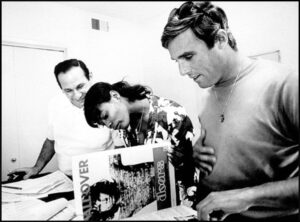 David combined the romanticism and emotional complexity of the great Broadway composers with the modern day directness of ’60s AM radio in such songs as “Alfie,” “Don’t Make Me Over” and “Twenty Four Hours From Tulsa.” Others like “The Look Of Love” and “This Guy’s In Love With You” have become cornerstones for vocalists looking to extend the Great American Songbook into the second half of the 20th century.
David combined the romanticism and emotional complexity of the great Broadway composers with the modern day directness of ’60s AM radio in such songs as “Alfie,” “Don’t Make Me Over” and “Twenty Four Hours From Tulsa.” Others like “The Look Of Love” and “This Guy’s In Love With You” have become cornerstones for vocalists looking to extend the Great American Songbook into the second half of the 20th century.
Born in New York on May 25, 1921, David followed the path of an older brother, Mack, who became a successful songwriter with “I Don’t Care if the Sun Don’t Shine” for Patti Page. David started Seven Seas” by Sammy Kaye in 1949 and “Bell Bottom Blues” by Teresa Brewer in 1954. Coming of age when pop music was in a period of transition, he developed skills as a big band writer.
His 14-year partnership with Bacharach started in 1957 in New York at the Brill Building offices of Paramount Pictures’ music publishing arm, Famous Music. The duo steered dear of the burgeoning teen market and wrote for adult stars who, like David, were in their late 30s and early 40s.
 They made history first in the United Kingdom, becoming the first songwriters to have two consecutive No. is: Michael Holliday’s “The Story Of My Life” and “Magic Moments” by Perry Como. An early breakthrough, while a modest hit, was Chuck Jackson’s 1960 single “I Wake Up Crying,” a rendition that was, at turns, operatic and vulnerable, a stellar interpretation of David’s lyric against Bacharach’s Lieber & Stoller-inspired arrangement.
They made history first in the United Kingdom, becoming the first songwriters to have two consecutive No. is: Michael Holliday’s “The Story Of My Life” and “Magic Moments” by Perry Como. An early breakthrough, while a modest hit, was Chuck Jackson’s 1960 single “I Wake Up Crying,” a rendition that was, at turns, operatic and vulnerable, a stellar interpretation of David’s lyric against Bacharach’s Lieber & Stoller-inspired arrangement.
Chart-wise, the team clicked in 1962 with “(The Man Who Shot) Liberty Valance” by Gene Pitney. It was intended as the theme for John Ford’s film, but rejected by the director. America, though, fell in love with it, pushing it to No. 4 on the Hot 100.
Soon thereafter, David and Bacharach were full-time partners as Jackson, Jerry Butler, Jack Jones and Dusty Springfield took their songs up the R&B and pop charts in the years preceding the British Invasion. Most significantly, the singer they used for their demo sessions, Warwick, joined the Scepter Records roster and, beginning in late 1962, started an indelible string of hits that expressed elegant anguish, including “Don’t Make Me Over,” “Anyone Who Had A Heart” and “Walk On By.”
It was Herb Alpert who would give Bacharach and David their first No. 1. When CBS asked Alpert to star in a TV special in 1968, the musician came up with the idea of singing to his wife. After reviewing more than 50 submissions, Alpert selected Bacharach and David’s “This Guy’s In Love With You.” The day after the special aired, the network was flooded with calls from viewers asking where they could buy the song. The single was released the next day and would eventually spend four weeks at No. 1.
While “What the World Needs Now” needed a year to gestate, another song needed seven years. In 1963, Richard Chamberlain recorded “(They Long To Be) Close to You,” but it wasn’t until the Carpenters made it their first Bacharach-David recording in 1970 that it would hit No. 1, staying there for four weeks.
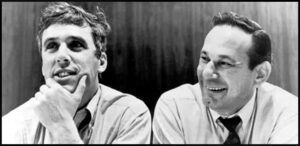 Less than a month before “Close to You” hit No. 1, David and Bacharach won their one and only Academy Award, writing “Raindrops Keep Falling On My Head” for B.J. Thomas to sing in “Butch Cassidy and the Sundance Kid.” The duo, at the time, had a built up a significant body of work by writing songs for films, among them “Alfie” for Cher, “What’s New Pussycat?” for Tom Jones, “My Little Red Book” for Manfred Mann and “Casino Royale” for Alpert and the Tijuana Brass. And on Broadway, Bacharach and David converted Billy Wilder’s “The Apartment” into the hit musical “Promises, Promises,” producing another of their signature songs, “I’ll Never Fall in Love Again.”
Less than a month before “Close to You” hit No. 1, David and Bacharach won their one and only Academy Award, writing “Raindrops Keep Falling On My Head” for B.J. Thomas to sing in “Butch Cassidy and the Sundance Kid.” The duo, at the time, had a built up a significant body of work by writing songs for films, among them “Alfie” for Cher, “What’s New Pussycat?” for Tom Jones, “My Little Red Book” for Manfred Mann and “Casino Royale” for Alpert and the Tijuana Brass. And on Broadway, Bacharach and David converted Billy Wilder’s “The Apartment” into the hit musical “Promises, Promises,” producing another of their signature songs, “I’ll Never Fall in Love Again.”
Sadly, it was a film that led to their breakup. The two had a falling out after the disastrous effort in 1973 to create musical version of “Lost Horizon,” the 1937 Frank Capra film. Warwick sued them for not supplying her with material and they didn’t write together again for almost 20 years, reuniting in 1992 on “Sunny Weather Lover.”
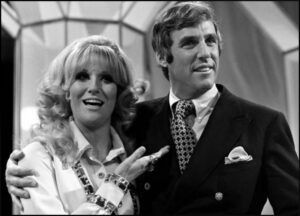 David’s best-known work with other collaborators came in 1984 when Julio Iglesias and Willie Nelson had a hit with “To All The Girls I’ve Loved Before, “a co-write with Albert Hammond.
David’s best-known work with other collaborators came in 1984 when Julio Iglesias and Willie Nelson had a hit with “To All The Girls I’ve Loved Before, “a co-write with Albert Hammond.
David’s post-Bacharach years were spent doing charitable work, collecting art and, from 1980 to 1986, serving as president of ASCAP. At that time, ASCAP programs to educate and connect composers were in their infancy and the performing rights organization was creating its first wave of dealings with cable TV.
David was inducted into the Songwriters Hall of Fame, the Nashville Songwriters Hall of Fame and, earlier this year, received, with Bacharach, the fourth Gershwin Prize from the Library of Congress.
David is survived by his wife, Eunice; two sons; and three grandchildren. His first wife, Anne, died in 1987. END
By Phil Gallo | Additional reporting by Fred Bronson
Credit: Published in Billboard, September 15, 2012. Billboard, 2012. All rights reserved. Copyrighted material
A MCRFB Note: In part, this article is just as much a Burt Bacharach piece as it was a tribute to Hal David, who passed away in September 2012. In adding further to this Billboard obituary, David’s co-composer partner, Burt Bacharach, just days ago passed away on February 8, 2023.
We honor their legacies today.

![]()
 U.S. Recording labels Clash in Courts Over Claims to Beatles Recording Rights
U.S. Recording labels Clash in Courts Over Claims to Beatles Recording Rights
 NEW YORK — Vee Jay Records filed a motion in New York’s Supreme Court against both Capitol Records and Swan Records here Friday (January 17) seeking an injunction restraining the companies from manufacturing, distributing, advertising or otherwise of disposing of recordings by the Beatles.
NEW YORK — Vee Jay Records filed a motion in New York’s Supreme Court against both Capitol Records and Swan Records here Friday (January 17) seeking an injunction restraining the companies from manufacturing, distributing, advertising or otherwise of disposing of recordings by the Beatles.
The motion was brought before Judge Mullen in Supreme Court, who reserved decision of the case.
This case is of but one of many suits and countersuits being bandied about the courts over the sensational young singing group from Liverpool. END
_______________
Credit source information: Billboard, January 25, 1964
 |||||||||||||||||||||||||||||||||
|||||||||||||||||||||||||||||||||
 CHICAGO — The Beatles, the nation’s hottest recording property today, are becoming the object of the nation’s hottest lawsuits, at least as far as the record industry is concerned.
CHICAGO — The Beatles, the nation’s hottest recording property today, are becoming the object of the nation’s hottest lawsuits, at least as far as the record industry is concerned.
The rock-and-rolling English group has a series of singles and LP’s out on three labels — Capitol, Vee Jay and Swan. Each of the offerings is bounding up the national charts like Topsy.
And each is becoming involved in a series of suits and countersuits between the various recording companies involved.
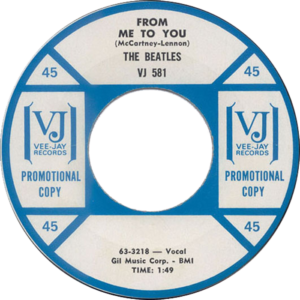 Most confused are the nation’s dealers and one-stops, many of whom have received telegrams from one or more of the parties. noting that appropriate legal action would be taken if they persisted in selling the other’s product.
Most confused are the nation’s dealers and one-stops, many of whom have received telegrams from one or more of the parties. noting that appropriate legal action would be taken if they persisted in selling the other’s product.
The matter is far from settled, but as of Billboard press time, Capitol was granted an injunction in Cook County Circuit Court (January 15) restraining Vee Jay from manufacturing, distributing, advertising or otherwise disposing of the Beatles’ recordings.
The Capitol injunction is good for 30 days and Vee Jay is slated to file an answer next Wednesday (January 22).
Vee Jay, meanwhile, has filed a suit seeking a similar injunction against Capitol and Swan, with a hearing slated for New York’s Supreme Court before Judge Saul Streit last Friday (January 17).
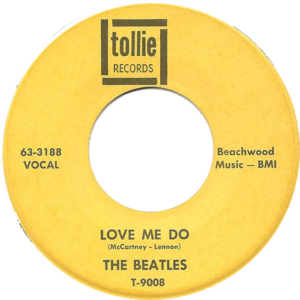 Under the Capitol injunction, “Vee Jay, its agents, attorneys and servants” are prevented from selling or advertising Beatles’ product.
Under the Capitol injunction, “Vee Jay, its agents, attorneys and servants” are prevented from selling or advertising Beatles’ product.
Presumably, and according to Vee Jay sources, the injunction does not apply against dealers, one-stops, rack jobbers and even distributors who might already have the records in stock.
According to Jay Lasker, Vee Jay executive vice-president, “we’ve shipped an awful lot of records, more than Capitol.”
Capitol attorney, Sidney Zatz, however, has indicated that “steps could he taken” against dealers who persisted in selling the Vee Jay product, though he did not specify what this would entail.
The product causing all the fuss is:
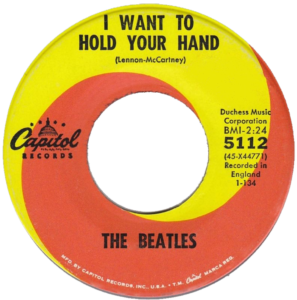 Capitol, “I Want To Hold Your Hand,” a single, No. 3 on Billboard’s Hot 100 this week, and “Meet The Beatles,” an LP.
Capitol, “I Want To Hold Your Hand,” a single, No. 3 on Billboard’s Hot 100 this week, and “Meet The Beatles,” an LP.
Vee Jay, “Please Please Me.” a single, and two LP’s, “Introducing The Beatles,” already distributed, and “The Beatles and Frank Ifield,” not yet shipped but waiting to go.
Swan, “She Loves You”, a single breaking into Billboard’s Hot 100 in position 69.
Neither Vee Jay nor Capitol is seeking damages as of this date, though a Capitol spokesman did not rule out the possibility of this taking place at a later date.
 In its motion for injunction, Capitol claimed exclusive U. S. distribution rights to all recordings by the Beatles. The label accused Vee Jay of manufacturing and selling albums introducing the Beatles in violation of Capitol’s exclusive right.
In its motion for injunction, Capitol claimed exclusive U. S. distribution rights to all recordings by the Beatles. The label accused Vee Jay of manufacturing and selling albums introducing the Beatles in violation of Capitol’s exclusive right.
Capitol contended in its suit that Vee Jay’s rights to the Beatles’ recording were canceled last August.
The suit notes that initially Vee Jay was licensed by Trans Global, a New York firm licensed to distribute EMI product. EMI had the original Beatles’ contract.

Capitol claims that Trans Global canceled its contract with Vee Jay August 8 because of non-payment of royalties. Trans Global allegedly relinquished its rights to EMI with the latter then turning them over to Capitol.
Vee Jay, meanwhile, contends that it has a five-year contract with the Beatles and that it is definitely not in default for failure to pay royalties.
Capitol’s suit notes that the label has spent 550,000 in extensive nationwide promotion of the Beatles’ recordings. END
_______________
Credit source information: Billboard, January 25, 1964
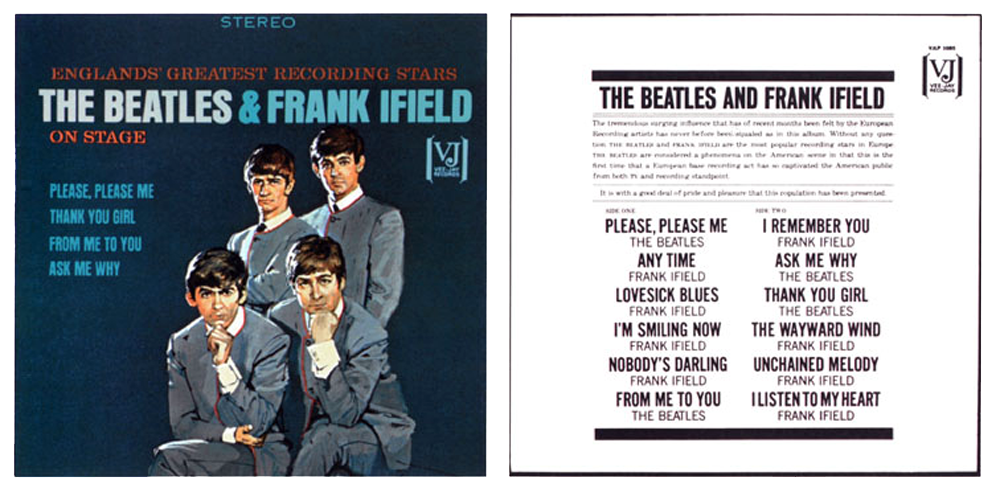

![]()
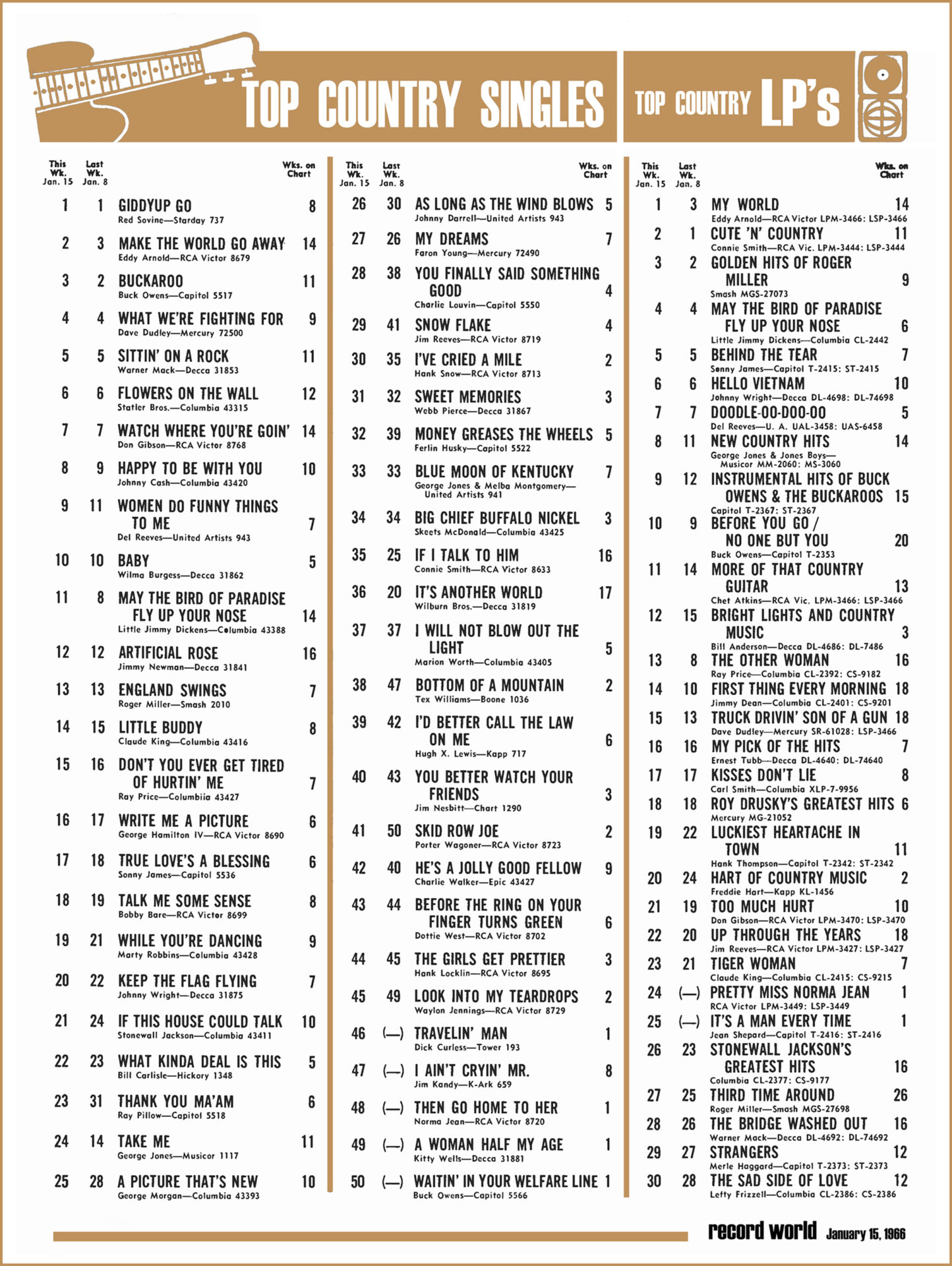
The featured Country singles and Country LP’s chart courtesy of Record World, as issued, for this week in January, 1966.

The featured Record World chart was digitally re-imaged and restored by Motor City Radio Flashbacks

![]()
 ON YOUR PC? You can read the above Record World 01/15/1966 Country chart ENLARGED. For a larger detailed view click above images 2x and open to second window. Click image anytime to return to NORMAL image size.
ON YOUR PC? You can read the above Record World 01/15/1966 Country chart ENLARGED. For a larger detailed view click above images 2x and open to second window. Click image anytime to return to NORMAL image size.
Click your server’s back button to return to MCRFB.COM home page.
ON YOUR MOBILE DEVICE? Tap over chart image. Open to second window. “Stretch” across your device screen to magnify for larger print view.
![]()